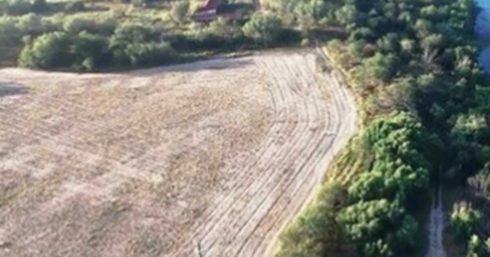In a significant development, Texas has extended an offer to President-elect Donald Trump to use a 1,400-acre plot along the U.S.-Mexico border for building detention facilities aimed at undocumented migrants. This plot, overseen by the Texas General Land Office, is being proposed as a location to process, detain, and coordinate the deportation of individuals the Trump administration considers “violent criminals.” Trump has repeatedly promised to implement strict immigration enforcement policies, including mass deportations, and this Texas initiative aligns with his goals to strengthen the border.
Texas Land Commissioner Dawn Buckingham emphasized the practical suitability of the land, noting it is largely flat farmland that could support the rapid construction of such facilities. The offer, initially reported by Fox News, signals Texas’s proactive stance on border security. However, despite Texas’s support, legal and logistical challenges remain; rights groups are expected to contest the move, and financial constraints may arise as Trump pushes forward with his deportation plans.
Widespread Support and Opposition Among Border States
Texas’s offer to Trump has received backing from the state government, which has implemented its own border security measures since Trump’s departure from office. The support underscores Texas’s eagerness to partner with the new administration, viewing it as a means to address long-standing immigration issues. Buckingham confirmed her support, asserting she is “100% on board with the Trump administration’s pledge to remove criminals from our country.”
Contrarily, the Democratic governors of neighboring states such as California, Arizona, and New Mexico have made it clear they do not intend to support mass deportation efforts. In a press statement, Trump transition spokeswoman Karoline Leavitt underscored Trump’s commitment to border security, vowing to “marshal every lever of power” to ensure community safety. This partisan division underscores the potential for a fragmented approach to immigration enforcement across the U.S., with Republican-led states pledging support while Democratic states prioritize sanctuary policies.
Planning and Potential Designs for New Facilities in Texas
Though it remains unclear what specific design and scale these new detention facilities might assume, Tom Homan, Trump’s incoming “border czar,” has suggested the potential for “soft-sided” structures. Currently, U.S. Customs and Border Patrol utilizes similar temporary facilities, which are less rigid than brick-and-mortar structures and typically serve short-term holding purposes. Larger, permanent facilities managed by Immigration and Customs Enforcement (ICE) could be deployed for more sustained detainment needs, alongside county and state jails.
Top Trump adviser Stephen Miller, recently appointed as deputy chief of staff for policy, has hinted at plans to create vast staging centers in Texas to facilitate mass deportations. In late 2023, Miller discussed with the New York Times that these facilities would likely be erected on available land close to the Texas border, positioning Texas as the primary processing hub for deportations under the Trump administration. A $3.4 million allocation by President Joe Biden in a recent spending bill would allow ICE to hold 41,500 detainees daily, though critics argue this capacity would be quickly surpassed under Trump’s proposed policies.
Divisive Reactions and “Patchwork of Protections” Across States
Texas’s initiative is unfolding against a backdrop of resistance from Democratic-led states and cities that have vowed to uphold “sanctuary” policies. The Los Angeles city council, for instance, passed a recent ordinance preventing local resources from being used to aid federal immigration enforcement. As these contrasting policies develop, analysts predict an even sharper divide between red and blue states on immigration.
Kathleen Bush-Joseph, a policy analyst with the Migration Policy Institute, suggested that cooperation from Republican-led states like Texas may result in a “patchwork of protections” across the nation, with migrants facing widely varying treatment based on their location. Bush-Joseph added that migrants apprehended in Democratic regions might be transferred to facilities in states like Texas, where Trump’s immigration goals would be prioritized. This uneven enforcement could create complex legal and logistical issues, further intensifying the debate over state and federal jurisdiction in immigration policy.














